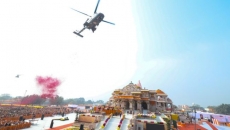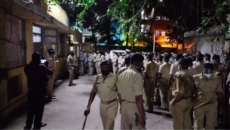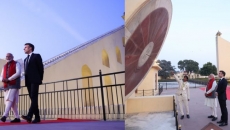"Till date, you did not file an application for bail?" queried a bench headed by Justice Sanjiv Khanna.
In response, senior advocate Abhishek Manu Singhvi, appearing for Kejriwal, said: "We have not filed a bail application because the arrest is ‘illegal’ and the width of section 19 (of Prevention of Money Laundering Act) is much much wider when the arrest is per se illegal."
He added that the ED is required to demonstrate the "necessity to arrest" on the "materials available" with a "reason to believe" that the accused has been guilty of an offence under the anti-money laundering law.
Interjecting, Additional Solicitor General S.V. Raju, representing the ED, said that Kejriwal did not object to the subsequent custody.
"If initial arrest is illegal, therefore, I (Kejriwal) did not object to subsequent custody," Singhvi responded.
Further, he argued that documents, including CBI’s FIR and ED’s ECIR, did not connect Kejriwal remotely with the alleged scam.
"There are three supplementary charge sheets (by CBI) where I am not named," Singhvi said, adding that mere "non-cooperation" of a witness or denial of interim relief by the Delhi High Court for protection from coercive action could not be a ground for arrest.
Rising for the day, the apex court said: "We will take it up tomorrow."
In his latest affidavit filed before the apex court, the AAP supremo has condemned his arrest as politically motivated, arguing that it unfairly advantages the ruling party during the ongoing elections, compromising the principle of 'free and fair elections'.
He portrayed the case as a prime example of the Central government's misuse of agencies like the ED to suppress political opponents, reiterating his stance that the ED's actions were part of a concerted effort to undermine the Aam Aadmi Party (AAP) and its leaders.
Meanwhile, the counter affidavit filed by ED’s Deputy Director said that Kejriwal’s petition was devoid of merit and his arrest was necessitated due to his "total non-co-operative attitude".
The affidavit said that Kejriwal was avoiding interrogation by not remaining present before the investigating officer despite being summoned nine times and while recording his statement under section 17 of the PMLA, he was avoiding answering questions by being evasive and totally non-cooperative.






